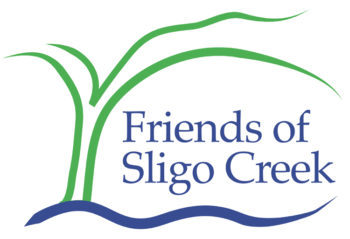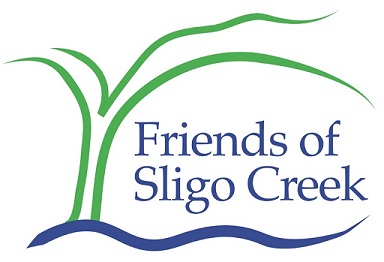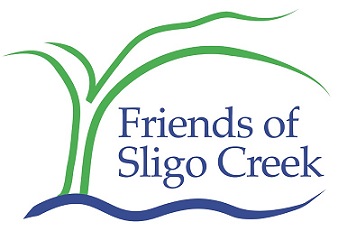Calendar of Events
See upcoming events, view the calendar, make a suggestion for an event, and see summaries of past events.
upcoming events
Bird Walk on Sat, May 4 at 8:00am
Please RSVP to [email protected] by May 1st.
Head out in the early morning to catch sight of and hear migrating as well as year-round resident birds, guided by 3 accomplished birders. Last May we saw or heard 37 species.
This popular walk will be led by David Blockstein, Mary Singer, and Dave Wood.
David Blockstein, an ornithologist by training, is a senior adviser with the Association for Environmental Studies and Sciences. Mary Singer is a member of the Maryland Ornithological Society and has birded in the US, in the American South and on the West Coast, in Africa, and in Central and South America. Dave Wood is the editor of the Maryland Ornithological Society’s quarterly newsletter, The Maryland Yellowthroat.
The event will be limited in size, and, therefore, requires an RSVP to [email protected]. Please RSVP no later than May 1st. We will keep a waiting list if we reach the limit. You will receive directions to the meeting spot (between Georgia Ave. and Colesville Rd.) when we receive your RSVP.
If we get much more than a sprinkle of rain on May 4th, we will postpone the walk to Sunday, May 5th.
Sligo Creek Fest on Sat, May 4 from 11:00am to 3:00pm
MoCo Parks’ Open Parkway program will hold a Sligo Creek Fest on Sligo Creek Parkway between Dennis Ave and University Blvd on Sat, May 4.

Sligo Creek Fest is a street festival in the park for residents of all ages, with live music, street performers, kids’ activities, hands-on activities by community groups and Montgomery Parks, and food/beverages from food trucks and local breweries. FOSC will be there! Find out more on the Parks website.
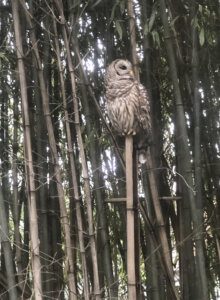
This May, the species we expect to encounter include:
Mourning Dove
Downy Woodpecker
Northern Flicker
Blue Jay
American Crow
Carolina Chickadee
White-breasted Nuthatch
Blue-gray Gnatcatcher
House Wren
Northern Parula
Chimney Swift
Red eyed vireo
Gray Catbird
Common Grackle
American Robin
Cedar Waxwing
American Goldfinch
White-throated Sparrow
Song Sparrow
Change the calendar view to Week, Month, or an Agenda view by selecting a tab at the top right of the calendar.
What program or event would you like to see FOSC offer?
PAST EVENT: Sweep the Creek Spring 2024
Thanks to the 200+ people who converged during the Spring 2024 Sweep the Creek event to the creeks and parkland to cleanup litter. They removed more than 100 bags of litter and many pounds of large trash items such as bikes, tires (a perennial problem), fencing, etc.
The water is cleaner and the habitat safer for the flora and fauna of Sligo Creek, Long Branch and Wheaton Branch.
PAST EVENT: President’s Day hotspot cleanups in 3 sections of Sligo Creek park
Feb 19, 2024 – Section 1, 4, and 7 stewards ran three litter hotspot cleanups over the President’s Day weekend. Over 101 volunteers turned up to relieve the park of 118 bags of trash, 8 bags of recyclables, and a large number of bulk trash items such as shopping carts, bike frames and wheels, ladders, paint cans, furniture, lumber, a mattress, tires, etc.
Thank you to the Ed Murtagh and Nick Clements for coordinating these events, to the stewards who led the cleanups at the three sites – Susan DeFord (Wheaton Branch ponds), Lyn Hardy and Kristin Zimmer (Sligo at Rt. 410 East/West Highway), and Chris Richardson (Piney Branch and Sligo) – and to all the volunteers who came out on a beautiful day to do a lot of good!
PAST EVENT: Sligo Mill Neighborhood Conservation Area Cleanup
July 8, 2023 – MoCo Parks Dept sponsored a Summer Cleanup at Sligo Mill Neighborhood Conservation Area at Sheridan St and Sligo Mill Rd in Takoma Park.
PAST EVENT: Green Streets tour with Kit Gage
Summer 2023 – Stormwater and native plant horticulturist Kit Gage offered free tours of the Green Streets project in Sligo Park Hills and her own conservation landscape garden.
PAST EVENT: Ask a Bumblebee – A Community Science Project on Bumble Bee Floral Preference
June 21, 2023 – Which flowers do bumble bees in Sligo Creek prefer? That’s what the Ask A Bumble Bee (AABB) community science project is trying to figure out!
AABB coordinator Jenan El-Hifnawi of the USGS Bee Inventory and Monitoring Lab presented the community science project that looks at bumble bee floral preferences. The program is ongoing and you can get involved through this link. Jenan shared some preliminary results from Spring 2022 about what bees rank as their top plants:
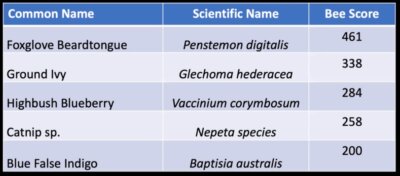
Find out more by viewing the Ask a BumbleBee video of the talk on the FOSC YouTube Channel, in the FOSC newsletter, and on the Natural History tab of this website.
PAST EVENT: Turning a Neighborhood into a Pollinator Haven
May 10, 2023 – Sligo Creek neighbors and friends Ross Campbell, Eric Cathcart, and Kyle Simpson told the story of how residents of the North Hills of Sligo Creek neighborhood took advantage of a change in local street design to create two native wildflower gardens. They inspired other neighbors to establish a third garden and to look for ways to create pollinator gardens in public and private spaces. The video of the talk is available on the FOSC YouTube channel.
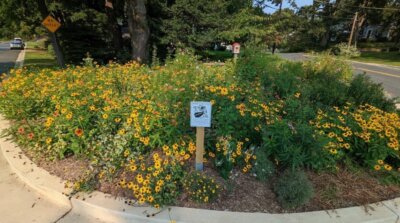
Neighborhood street to native plant haven, the subject of the FOSC May 10 virtual talk.
PAST EVENT: Bark Talks and Walks – Identifying Sligo’s Trees Through Their Bark.
Feb 22, 2023 – Ever wonder how to identify the trees that surround us in Sligo Creek park and our neighborhoods? From the smooth gray bark of beech and ironwood to the deeply furrowed bark of walnut and chestnut oak, we learned to look at easy clues to know what’s towering over us in woodlands throughout the park. Michael Wilpers, former FOSC Board president and current Natural History committee chair, gave a talk and then a walk a few days later to understand different bark types and practice identifying trees. View the video of the talk below (it’s also on the FOSC YouTube channel.) You can also view and download the pdf of the slides for your own use in the field on the Natural History page.
PAST EVENT: Winter Mini-Sweep and Weed Warrior Events on President’s Day 2023
Volunteers came out for a Mini-Sweep at the Wheaton Branch Ponds and Weed Warrior events all over the watershed. Thanks, everyone!
PAST EVENT: FOSC 20th year celebration
On Sept 18th, more than 150 people helped FOSC celebrate 20 years of protecting, restoring and enjoying Sligo Creek and its tributaries.
Many FOSC volunteers guided event-goers in leaf printmaking, bee-house building, water testing and heat mapping, what all those “invasives” everyone keeps hearing about look like and how they’re removed, and how the Sweep the Creek, Steward and WaterWatchDog programs work.
Many attendees awaited the winning numbers for the raffle of a Compost Crew membership and 3 bags of compost (thank you, Compost Crew!), 5 award-winning Sligo Creek photographers’ work (thank you Dan Treadwell, Stephen Davies, and Julius Kassovic!), a One Ocean Scuba beginners’ lesson for 4 participants (thank you One Ocean Scuba!), and 15 native plants from Pope Farm Nursery, the Parks’ Dept nursery (thank you, Pope Farm Nursery / Parks Dept!). Founding member Laura Mol brought an extensive natural history collection from the Sligo watershed. An extensive history of Rachel Carson in our area was provided by Rebecca Henson of the Springsong Museum initiative (thank you, Rebecca!) The live music was lively and joyful (thank you, Andrew Marcus and Gabe Hutter).
PAST EVENT: Stewards Hike
On July 30, FOSC Section Stewards hiked Section 1 of Sligo Creek, between New Hampshire Ave and the powerline Kestral Meadow at Riggs Road. This section is filled with a lot of interesting natural history, artwork and Sligo human history.
Learn more about Sligo Stewards and their role in protecting Sligo Creek on the Stewards page. We need stewards for Takoma and Wheaton Branches; contact Ed Murtagh at [email protected] if you’re interested.
PAST EVENT: Kestral Meadow Walk
Folks from FOSC, Kestral Meadow and the Takoma Horticultural Club met on a morning nature walk in Kestral Meadow on Aug 14 under the Pepco powerlines at Riggs Rd/16th Place just north of Sligo Creek.
From a participant: “We had great guides! John Stith and Bruce Sidwell were great teaching us about various birds and plants. This meadow is populated with such diversity of plants! Bruce had a written list of plants to identify.
We found beautiful blooming ironweed, milkweed, Joe Pye weed, three different morning glories….and many others. Such diversity of form and function! I never knew that sumac came in male and female!
John discussed kestrals and flickers that had been seen in this area previously, some people saw a hummingbird and, I think, a hawk. He explained that Pepco agreed to leave snags for woodpeckers, etc.”
Another walker noted: “Power lines and stream beds provide vital “highways” for wildlife. Some birds are beginning to migrate now. Warblers will venture here in September and October.
Deer tongue grass has foliage like dayflower. It’s a native that grows in wet places. And while monarch caterpillars feed on milkweed leaves, the butterflies just like their flowers and those of many other plants as well. Hemp Dogbane is in the same family as milkweeds, and also produces a sap that’s toxic to many birds and insects, though not to the Dogbane Tiger Moth. And some bats make clicking noises to signal their toxicity, just as Monarchs do with their coloration for birds.
Natives co-evolve with pollinators. 90% of butterflies are closely related to a plant species. Pretty cool, right? Bartlett pear, the invasive but beautiful flowering tree developed by the US National Arboretum, is now called Callery Pear. When cut back, it only spreads more rapidly. We saw lots of evidence of this at Kestrel Meadow.
Red clover, Queen Anne’s Lace (wild carrot), and chicory were all naturalized from Europe, although many people think of them as natives.
The boundary between Prince George’s and Montgomery County is largely the fall line between the Piedmont and Coastal Plain regions. Prince George’s County is mostly Coastal Plain.
Blue jays can sound like red-shouldered hawks. Hawks produce a longer and more consistent wash-waah sound.
PAST EVENT: Stewards Walk in Sligo Section 1
On July 30, FOSC held a Stewards’ hike in Section 1 of Sligo Creek, from New Hampshire Ave eastward to Riggs Rd. This section is filled with a lot of interesting natural history, artwork and Sligo human history. Learn more about Sligo Stewards and their role in protecting Sligo Creek on the Stewards page. We need stewards for Takoma and Wheaton Branches.
PAST EVENT: Stormwater Challenges in TP
PAST EVENT: Meet Chris Williams, new President of AWS
Chris Williams, the new president of the Anacostia Watershed Society spoke about his vision for the Watershed, including Sligo Creek. View the video – the passcode to the video is: Z?4Z64tU
PAST EVENT: Walk Into Sligo’s Past
Sun, March 24 – Bruce Sidwell led a walk through the historic Takoma section of Sligo Park, showing sites of attempts from 1890 until 1930 to exploit the beauty and other resources of Sligo Creek: a bookie joint, dam and waterworks, and a hotel, among other long-gone uses.
PAST EVENT: Early Botany in Sligo Creek
March 13, 2024 – Michael Wilpers, FOSC chair of natural history committee gave a talk about the prominant botanists who explored Sligo between 1876 and 1920, and the plants they found. Many are no longer found here; a few are very rare in the state of Maryland.
These early botanists collected more than 700 specimens, all preserved at the herbaria of the Smithsonian and the University of Maryland. In addition to the bog, their collecting targets ranged from the floodplains near Forest Glen Rd. to Sligo’s confluence with the Northwest Branch in Hyattsville.
This talk is presented as part of the 20th anniversary of John Parrish and RG Steinman’s “Native Plants of Sligo,” published in 2003 on the FOSC website. A second edition is forthcoming, fully updated with current scientific names and classifications and new plant sightings over the last 20 years. For further information contact [email protected].
View the presentation on the FOSC YouTube channel.
PAST EVENT: Macroinvertebrate testing
April 7, 2024 – A team of scientists and volunteers sampled Sligo water in Section 1 for the presence and number of different macroinvertebrates. THough the results were not verified until after the event, it appeared that there were fewer species present in fewer numbers compared with last spring. When they are available, the final tallies will be posted on the Macroinvertebrates page of this website.
PAST EVENT: FOSC online native plant sale
Oct 26, 2023 – The FOSC online native plant sale put more than 500 native plants into the hands of area residents for the fall planting season while supporting FOSC and our local pollinators. Pick up was easy (in Takoma Park) too!
PAST EVENT: Organic Lawn Care
Sept 20, 2023 – Mary Travaglini of MoCo DEP presented the ecology and chemistry of grass lawns, and the importance of leaves to keep them healthy. View the slides and video on the Stormwater and Natural History pages.
Mary Travaglini of MoCo DEP presented the ecology and chemistry of grass lawns, and the importance of leaves to keep them healthy. View the slides and video on the Stormwater and Natural History pages.
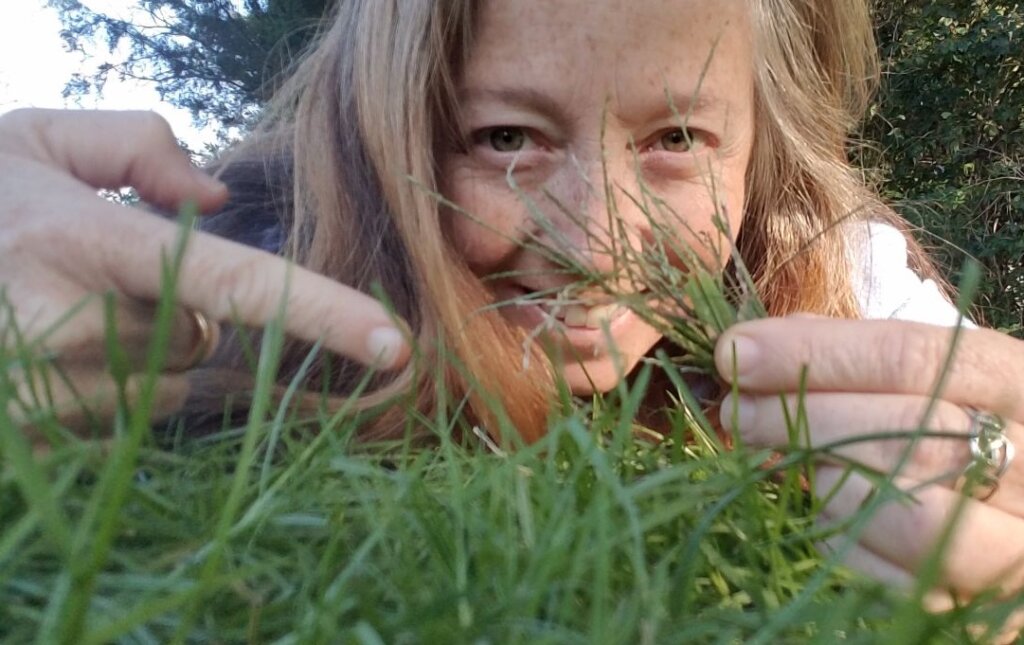
PAST EVENT: Green Streets Walks Participants toured stormwater gardens using native plants, getting ideas for their own conservation or rain gardens.

PAST EVENT: September 10 – FOSC at the Takoma Park Folk Festival
10 volunteers enjoyed the music and let people know about the park and creek, upcoming events like Sweep the Creek, and how to join FOSC.
PAST EVENT: The Invasion Curve – Implications for recent invasive species in our region
Sara Tangren of NCR-PRISM presented the data-based “Invasion Curve” which shows that early detection and rapid removal, or EDRR, is essential to thwart an invasive species from getting established and harming local ecosystems. NCR PRISM (National Capital Region — Partnership for Regional Invasive Species Management) coordinates the cross-boundary fight against invasives species in D.C. and surrounding counties. Sara welcomes your report any unusual plants you see to:
The video of this event is posted here and on the FOSC YouTube channel.
PAST EVENT: Bird Walk Spring 2023
On Sat, April 15, FOSC hosted a bird walk with Mary Singer and David Blockstein, experienced birders who have teamed up to lead numerous outings for FOSC in recent years.
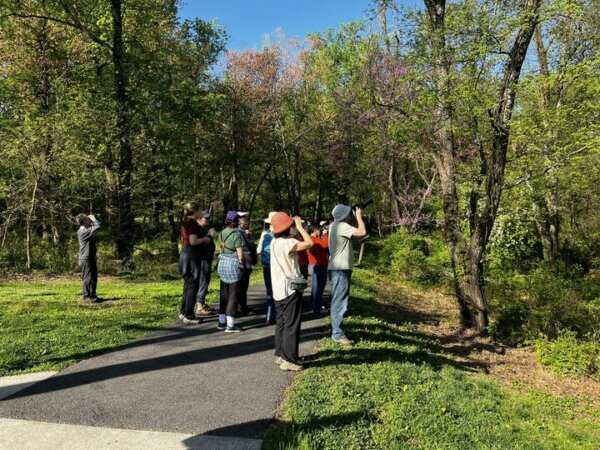
PAST EVENT: Fall 2022 Sweep the Creek
The Fall Sweep brought 300+ people to the park to clear out litter and debris. Check out the photos on the Sweep the Creek page and the Sweep the Creek Event Photos page.
PAST EVENT: FOSC in the Takoma Park 4th of July parade
Thanks to everyone who cheered FOSC on! It’s FOSC’s 20th year this year! We’re celebrating on Sept 18th.

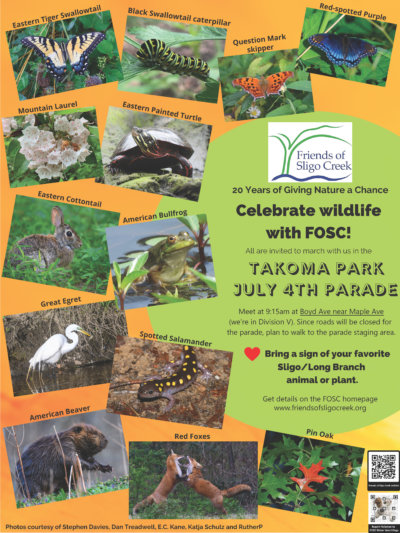
PAST EVENT: Bird Outings
May 14 – Bird outing with Dave Blockstein & Mary Sanger
May 15 – Bird outing with John Stith
PAST EVENT: USGS Monitoring in Sligo – data and trends
Chuck Walker of the regional USGS MD-DE-DG Water Science Center spoke on the health and water quality of Sligo Creek. The Water Science Center has partnered with MoCo DEP to collect continuous water quality data on 7 parameters at the Maple Ave gauge. How is Sligo faring compared to other regional streams? Chuck discussed the long term trends and implications for Sligo as our area gets more densely populated. If you missed the event, check out the video on FOSC’s YouTube channel.
PAST EVENT: Urban Forestry in MoCo Parks
View the video of the presentation
Oct 27 – Urban forestry in Parks – Colter Burkes, Senior Urban Forester at Parks, led a presentation and discussion of tree management in Moco Parks, plus green waste recycling, and hazardous tree management.
PAST EVENT: “Spotlight on Native & Invasive Vines of Sligo / Virtual Tour of Sligo Meadow & Restoration Projects”
-English Ivy
-Japanese Honeysuckle
-Mile-a-Minute
-Oriental Bittersweet
-Porcelainberry
-Wintercreeper
-Kudzu
-Wisteria
Corinne’s presentation shows photos of these NNIs. Please pull them from your yard!
Dianna Loescher, Senior Natural Resource Specialist at Parks, led a virtual tour of the Sligo meadow and restoration projects, highlighting the techniques and plantings that are working and those that have been revised as site data is gathered. Check out her presentation here.
Our thanks to Corinne and Dianna for great presentations!
PAST EVENT: How’s the Water? Results of the Summer Water Quality Testing Program in MD
Water Quality continues to be a challenge overall in Sligo and its tributaries. But there are areas that are improving. See the weekly results of the summer testing program in Sligo on the ARK/FOSC Volunteer Water Quality Monitoring Data page. The just-released Final Maryland Summer 2021 Volunteer WQ Report is also on that page, and on the Anacostia Riverkeeper website. View the video of the event at this link.
PAST EVENT: “Bird Outing”
June 19 – Bird outing with Dave Blockstein and Mary Sanger.
PAST EVENT: “Cicada Party”
PAST EVENT: Trash Action in the MD Assembly
Shari Wilson, Interim Executive Director of Trash Free Maryland, briefed us on the trash and litter reduction bills in the Maryland General Assembly this session, including where lobbying might have the greatest impact.
PAST EVENT: “Migratory fish in Sligo?”
July 20, 2021 – Phong Trieu of the Metropolitan Washington Council of Governments Anacostia Program described his findings and observations about the migratory fish entering Anacostia watershed tributaries in recent years. View the video of the talk:
PAST EVENT: “Less Lawn, More Life”
Merikay Smith, of the Master  Gardeners Speakers Bureau and the Muddy Branch Alliance board, described the process of converting her lawn into a native plant habitat that supports a diverse array of wildlife. Her neighbor joined in, converting parts of their lawn too.
Gardeners Speakers Bureau and the Muddy Branch Alliance board, described the process of converting her lawn into a native plant habitat that supports a diverse array of wildlife. Her neighbor joined in, converting parts of their lawn too.
She recommends starting by assessing what you have already – is it native or not, is it a non-native invasive or not? Take out the non-native invasives first! Some other elements of a habitat to incorporate are:
—Plant a full stand of a native – too little and birds who are attracted to nest near it are unable to feed their young for lack of food (chicks don’t eat seed, they eat caterpillars or other insects, so plant enough so there are insects to feed the brood.)
—Put a water source – can be a simple dish you pour out and replenish every few days.
—Make changes by starting with the corners, and then the edges of your property.
—Start in a corner(s) by planting a native tree – these are the circles on a plan. Oaks are superstars. For example, a Black Jack Oak supports 500+ species of insects
—Then connect the circles with beds along the edges.
—Site prep – build beds by covering a lawn area with cardboard, then compost and mulch, in the fall. Don’t dig!
—Fully research the species / cultivars you plan to plant since many seem native but aren’t genetically native and a host for local insects.
—Get recommendations by zip code through the National Wildlife Federation’s Native Plant Finder and the Audubon Society’s Plants for Birds.
—Focus on keystone plants – those that sustain the food web of plants-insects-birds:
Keystone trees: White Oaks are superstars; Native Cherries, Native Willows, Native Birches, Cottonwoods, Elms
Keystone herbaceous plants: Native Goldenrods, Asters, and Sunflowers.
PAST EVENT: Improving Outreach and Inclusion
Our watershed is diverse in so many ways. We recognize that we need to reach out thoughtfully and more effectively to be inclusive of all Sligo watershed communities in outreach, programming and leadership.
On March 25, three leaders in the Black and Latino environmental movement discussed their perspectives on how Friends of Sligo Creek can engage the diverse communities living within the watershed.
Moderated by FOSC Advocacy director Kit Gage, the panelists discussed the importance of developing relationships with the communities who have been underrepresented in FOSC’s work; learning about the issues important to those living in the community; and tapping residents to develop and lead initiatives in those communities. A synopsis recording of the discussion is available on the FOSC YouTube channel.
PAST EVENT: How to use iNaturalist
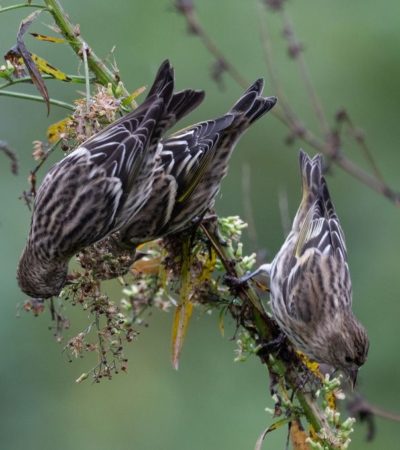
Heard about iNaturalist.org but uncertain how to navigate the site or contribute your own observations? Expert birder and iNaturalist contributor Stephen Davies recently gave a tour through the many features of this site. He used the iNaturalist project “Fauna and Flora of the Sligo Creek Watershed” as a starting point.
iNaturalist is an open-source, joint initiative of the California Academy of Sciences and National Geographic. It has world-wide scope, with 3.5 million people contributing 57.8 million observations to date.
Users can upload their observations, keep track of their photos, crowdsource identifications, join citizen science projects, see trends and build knowledge of the natural world. Creating an account at iNaturalist is simple and free.
FOSC also has a page on how-to-navigate-in-iNaturalist to help you find observations of interest and upload your own, as well as a page on how eBird.org works.
To receive the Newsletter with all upcoming event invitations and meeting links, please join FOSC.
PAST EVENT: What’s in Sligo’s Water?
Membrs of the Water Quality committee – Anne Vorce, Pat Ratkowski, Paul Chrostowski – and guests Mike Smith, FOSC President, Elaine Lamirande from the FOSC Stormwater Committee, Kit Gage from the Advocacy Committee, and Rachel Gauza from the Park Dept’s Aquatics Resource Management office presented a fascinating glimpse into the state of water quality of Sligo Creek today and trends over time.
These speakers discussed many facets of Sligo’s water quality: pollution and the importance of FOSC’s citizen-powered Water WatchDog pollution reporting and tracking program, growing concern on microplastic and persistent chemical contaminants, sediment pollution, chemical and Coliform bacteria loads now and trends, macro-invertebrates in the Creek, the detrimental impact of the increasingly powerful stormwater events on Sligo, and FOSC’s Sligo advocacy work across many issues, including against a proposal for use of synthetic turf locally.
We then opened things up for questions, observations, and suggestions on Friends of Sligo Creek’s water quality program.
— The FOSC Water Quality Committee
Change the calendar view to Week, Month, or an Agenda view by selecting a tab at the top right of the calendar.
What program or event would you like to see FOSC offer?
